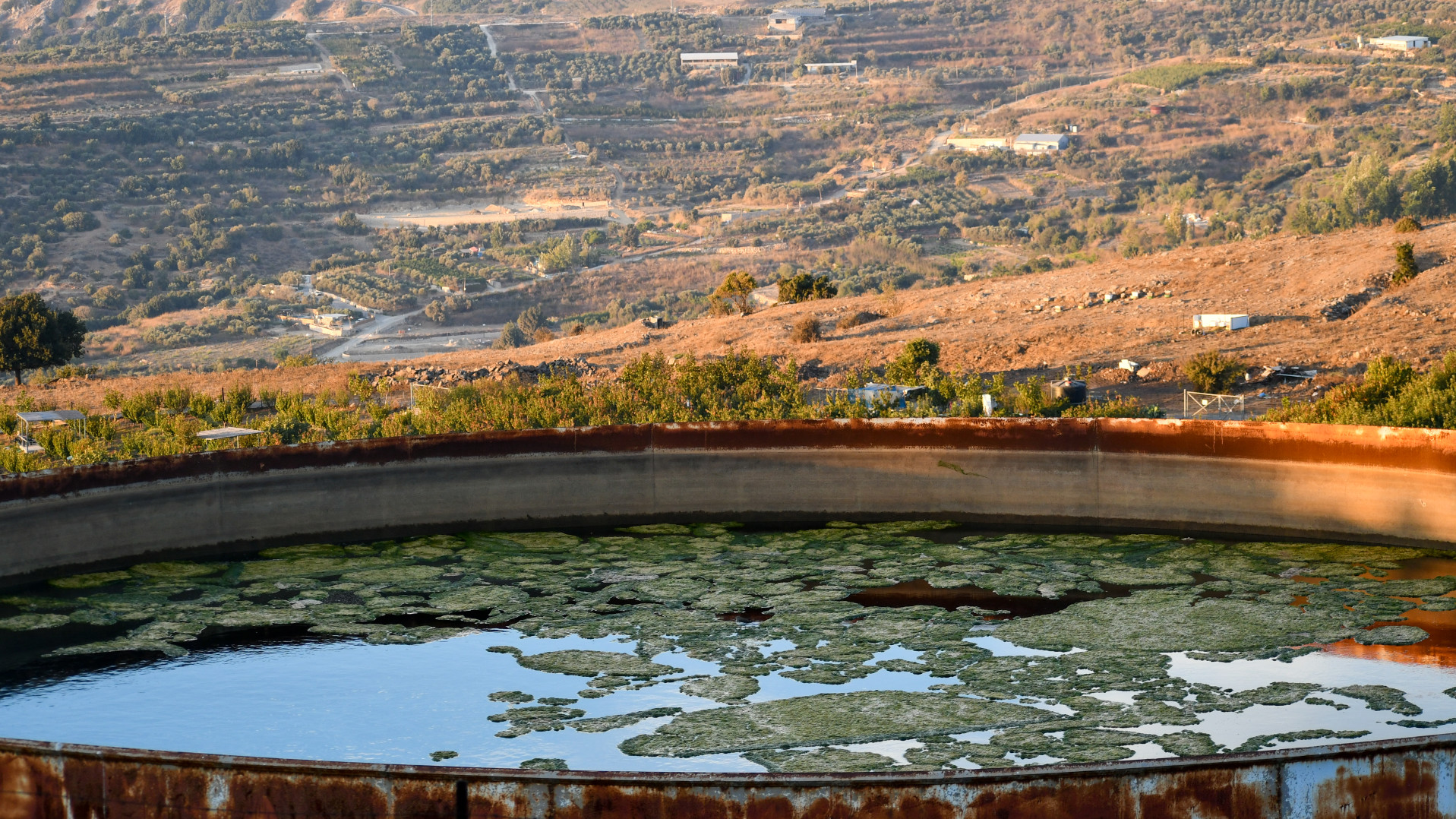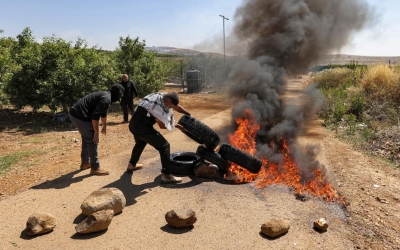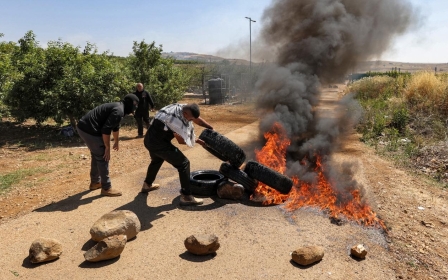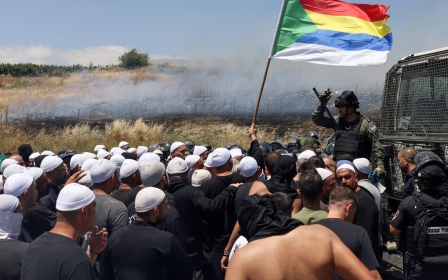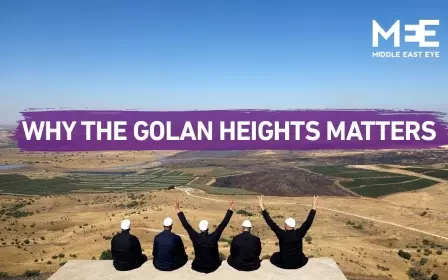How the Druze community has self-managed its economy in Israeli-occupied Golan Heights
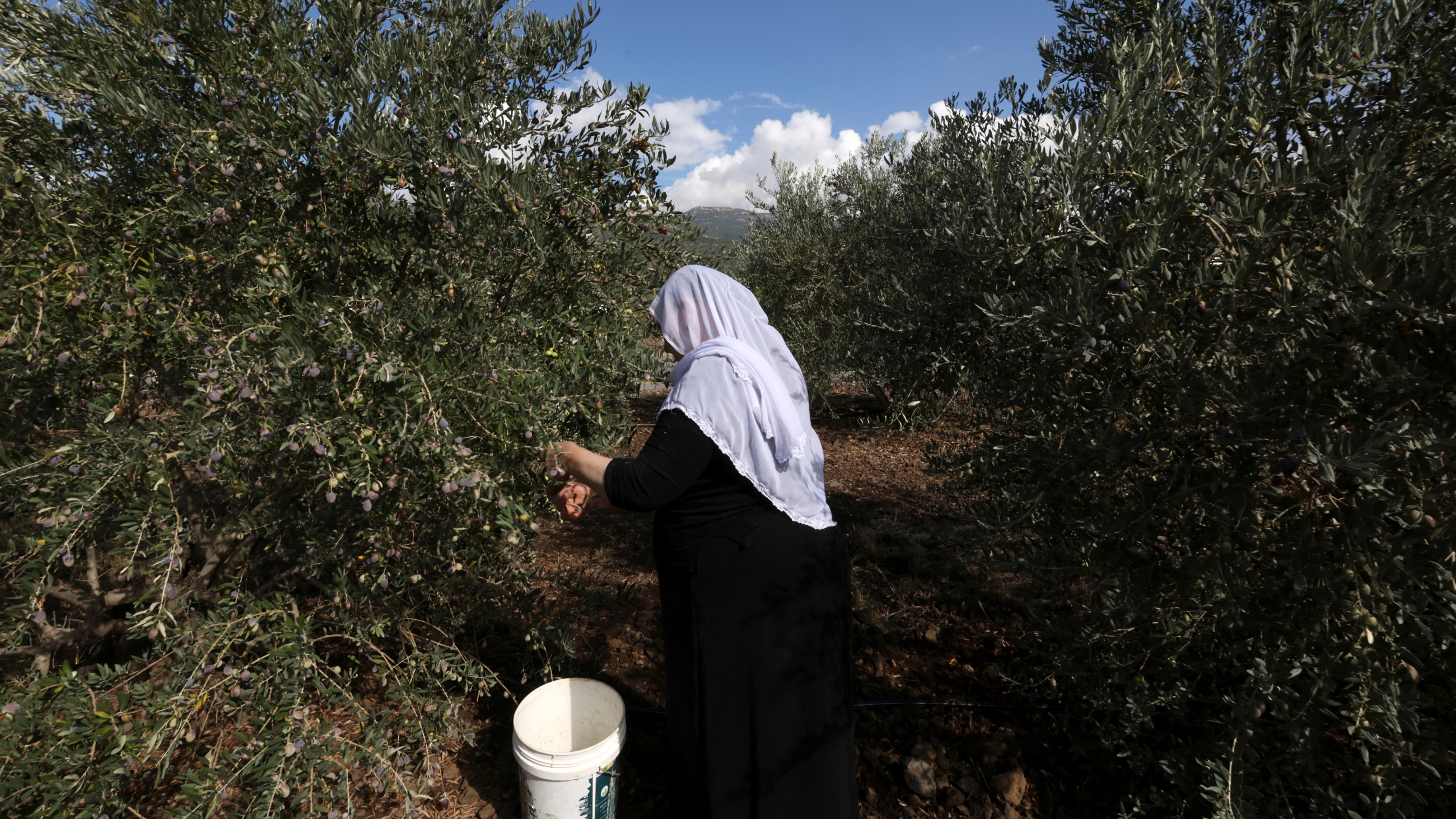
Almost all modern societies function financially through social services and infrastructure provided by the state, creating a system of dependency on the central government. These state services help create a quid pro quo of taxes and loyalty from citizens who equally rely on the role of the government in sustaining a strong economy.
While this approach is the case in many modern and western societies, it has not been the case in areas that Israel has occupied since 1967. The Syrian Arab communities living in those areas remain effectively "outlawed", in the sense that they exist outside of official laws and rights that are not afforded to them.
Aside from its military control, the Israeli government has been absent from all aspects of life, including its failure to provide basic resources and infrastructure as the standard condition in those areas.
New MEE newsletter: Jerusalem Dispatch
Sign up to get the latest insights and analysis on Israel-Palestine, alongside Turkey Unpacked and other MEE newsletters
A perfect example of a society that is self-managed, away from the occupier, and depends on its own infrastructure, economy, and manpower, while achieving goals of growth and prosperity under occupation, is the Druze community in the Occupied Golan Heights.
Necessity breeds invention
Since 1967, the Druze villages in the Occupied Golan Heights have self-managed their own society and economy by creating an agricultural economy that is separate from Israeli agriculture. Major projects involving irrigation, crop storage, refrigeration systems, sales marketing, and more were launched, bypassing the occupation and serving the local Syrian community and economy.
The basic industry of the Occupied Golan Heights is agriculture. Prior to 1967, the community was dependent on stock and wheat agriculture, switching to fruit tree agriculture as it would establish the indigenous communities' "sumud" (steadfastness) on the land.
The 1948 Israeli land law and the new land law passed in 1969 established that every land not planted would be considered state property, and since stock and wheat agriculture do not require the year-round use of the land, local farmers started planting fruit trees to preserve a permanent agricultural presence.
Syrian farmers in the Golan Heights refused to accept the bleak reality of the occupation and established their own road systems
In 2014, the latest year in which the data was collected, the four villages of Majdal Shams, Masada, Buq'ata, and Ein Qiniyye together produced 47,500 tons of apples, averaging 1.9 tons for every citizen in these villages. They additionally produce cherries, olive oil, seasonal fruits, and more each year.
The Israeli planning of roads and infrastructure has never taken into consideration the needs of local Arab communities. The occupying government's methods and policies are based solely on security claims to justify land confiscation from its minorities for the benefit of Israeli towns, cities, and settlements.
Indeed, the occupied Golan Heights is no different and is subject to these same exclusionary policies. However, due to strong local relationships and social innovation, the Syrian communities in this area were able to successfully implement infrastructure projects that the Israelis either refused to grant or banned entirely. They were carried out by volunteers and financed locally.
Since 1967, Israel has blocked roads connecting the Arab villages in the occupied Golan Heights. Israel's refusal to allow open access hindered agricultural development. The Arab communities, however, refused to accept this bleak reality and established their own road systems which connected the villages via agricultural roads between the apple and cherry fields, through volunteers who owned the necessary equipment.
Another challenge that the Syrian communities have faced is access to and usage of water for agriculture. Israel directs all water resources to Israeli settlements in the occupied Golan Heights and only five percent is provided to the local communities.
In addition, the 1959 Israeli Water Law banned the usage and collection of rainwater for any purpose and granted the ownership of all water to the state only. Because of this, Israel has banned Druze farmers from using existing reservoirs such as Lake Ram, and banned the digging of new wells.
This injustice and sabotage of resource development ultimately pushed local farmers to create an innovative project for agricultural water. They built large metal tanks, near the apple and cherry fields, which gathered rainwater during the winter.
During the 1980s, more than 600 tanks were constructed, with each tank averaging a 1000-litre capacity. Israeli occupation forces demolished many of these tanks and imposed high-priced fines on the others because of its discriminatory water law. Yet this did not deter local farmers, and hundreds of these tanks exist to this day.
Strong bonds
In addition to these economic and agricultural projects, several other social projects have been implemented since 1967 to protect the Syrian-Arab identity in the area. In Majdal Shams, two schools were built, one kindergarten and a summer school, all of which opened after Israel's annexation of the Golan Heights in 1981.
Many local clinics were built in all four villages, and more than eight crop storage and refrigeration units were constructed.
These self-governing projects were all established by public, local funding without any state-related money. Most were carried out by volunteers and the dedicated efforts of the local communities.
This independence from the occupation regime's services has created strong social bonds and empowered local communities to stand firm and united against colonial projects imposed by the state of Israel.
In June, mass protests by the Druze community received international media coverage following Israel's encroachment on privately owned lands in the occupied Golan Heights. An Israeli greenwashing colonisation project based on the development of wind turbine "green" technology on stolen lands was ultimately halted by Israeli Prime Minister Benjamin Netanyahu.
Once again, the Syrian Arab communities have demonstrated their resilience and commitment to resisting the occupation and fighting for their rights.
The views expressed in this article belong to the author and do not necessarily reflect the editorial policy of Middle East Eye.
Middle East Eye delivers independent and unrivalled coverage and analysis of the Middle East, North Africa and beyond. To learn more about republishing this content and the associated fees, please fill out this form. More about MEE can be found here.



